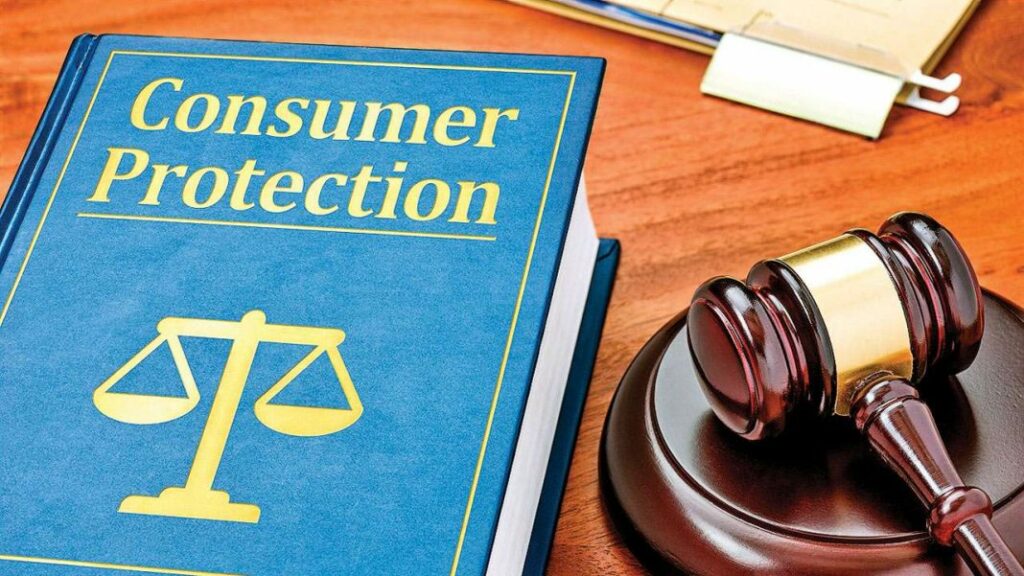The Consumer Protection Act in Thailand is a critical piece of legislation designed to safeguard consumers’ rights and ensure fair trade practices in the market. Enacted in 1979 and subsequently amended to address evolving economic and social dynamics, the Act provides a robust framework for protecting consumers against fraud, unfair practices, and unsafe products. This article delves into the intricacies of the Consumer Protection Act in Thailand, examining its legal framework, key provisions, the role of regulatory bodies, enforcement mechanisms, and the implications for businesses and consumers.
The Legal Framework of the Consumer Protection Act
The Consumer Protection Act B.E. 2522 (1979), and its amendments, forms the cornerstone of consumer rights in Thailand. The Act establishes the legal basis for protecting consumers in various aspects of commerce, from advertising and product safety to contract terms and dispute resolution. It is complemented by several other laws and regulations that collectively aim to ensure that consumers are treated fairly in the marketplace.
1. Scope of the Act
The Consumer Protection Act applies to all businesses operating within Thailand, covering goods and services sold to consumers. The Act addresses a broad range of issues, including:
- Misleading Advertising: Prohibiting false or exaggerated claims in advertising.
- Unfair Contract Terms: Regulating contract terms that may be deemed unfair or detrimental to consumers.
- Product Safety: Ensuring that products sold in the market meet safety standards and do not pose a risk to consumers.
- Pricing and Labeling: Requiring clear and accurate pricing and product information to be provided to consumers.
- Consumer Redress: Providing mechanisms for consumers to seek redress in cases of fraud, defects, or non-compliance.
2. Key Definitions
The Act provides clear definitions of terms critical to its implementation, including:
- Consumer: Any person who purchases or uses goods or services for personal use, not for resale or commercial purposes.
- Business Operator: Any individual or entity engaged in the production, sale, distribution, or provision of goods or services.
- Consumer Protection: Measures and mechanisms designed to safeguard consumer rights, ensure fairness in trade, and provide avenues for redress.
Key Provisions of the Consumer Protection Act
The Consumer Protection Act includes several key provisions that outline the rights of consumers, the obligations of businesses, and the enforcement mechanisms in place to ensure compliance.
1. Advertising Regulations
One of the core areas of focus in the Consumer Protection Act is the regulation of advertising. The Act prohibits misleading, false, or exaggerated advertising that can deceive consumers. Key points include:
- Prohibition of Misleading Claims: Businesses are prohibited from making false claims about the quality, origin, price, or benefits of their products or services.
- Mandatory Disclosures: Certain advertisements must include specific disclosures, such as health warnings or terms and conditions, to ensure that consumers are fully informed.
- Regulatory Oversight: The Office of the Consumer Protection Board (OCPB) monitors advertisements and has the authority to order the withdrawal of non-compliant ads and impose penalties on violators.
2. Unfair Contract Terms
The Act addresses the issue of unfair contract terms, particularly those that put consumers at a disadvantage or impose unreasonable conditions. It includes provisions that:
- Prohibit Unfair Clauses: Contract terms that are deemed unfair, such as those that limit the liability of the business operator or impose excessive penalties on consumers, are prohibited.
- Mandate Clear Communication: Contracts must be written in clear and understandable language, and any ambiguities are interpreted in favor of the consumer.
- Provide for Judicial Review: Consumers have the right to challenge unfair contract terms in court, and the judiciary can nullify such terms if found to be unreasonable.
3. Product Safety and Liability
Product safety is a critical component of the Consumer Protection Act. The Act imposes strict requirements on businesses to ensure that products sold to consumers are safe and fit for use. Provisions include:
- Mandatory Safety Standards: Products must meet the safety standards set by relevant government agencies. Non-compliance can result in penalties, including fines and product recalls.
- Liability for Defective Products: Businesses are held liable for damages caused by defective products, even if the defect was not intentional. This includes compensating consumers for injuries, property damage, or other losses.
- Product Recalls: If a product is found to be unsafe, businesses are required to recall it from the market and notify consumers of the recall.
4. Pricing and Labeling Requirements
The Act mandates that businesses provide clear and accurate information about the products and services they offer. This includes:
- Transparent Pricing: Prices must be clearly displayed and include all applicable taxes and fees. Hidden charges or misleading pricing practices are prohibited.
- Product Information: Labels must provide essential information, such as the product’s ingredients, manufacturing date, expiration date, and country of origin. This information must be accurate and not misleading.
- Language Requirements: Product labels and instructions must be provided in the Thai language to ensure that all consumers can understand them.
The Role of Regulatory Bodies
Several government agencies play a crucial role in enforcing the Consumer Protection Act and safeguarding consumer rights in Thailand.
1. Office of the Consumer Protection Board (OCPB)
The OCPB is the primary regulatory body responsible for implementing and enforcing the Consumer Protection Act. Its functions include:
- Monitoring Compliance: The OCPB monitors businesses for compliance with the Act, particularly in areas such as advertising, product safety, and contract terms.
- Handling Complaints: The OCPB receives and investigates consumer complaints, providing a mechanism for consumers to seek redress without going through the courts.
- Public Awareness: The OCPB conducts public awareness campaigns to educate consumers about their rights and how to protect themselves from unfair practices.
- Regulatory Actions: The OCPB has the authority to impose fines, order the withdrawal of non-compliant products or advertisements, and initiate legal action against violators.
2. Other Relevant Agencies
In addition to the OCPB, other government agencies have roles in enforcing specific aspects of the Consumer Protection Act:
- Food and Drug Administration (FDA): The FDA oversees the safety and labeling of food, drugs, cosmetics, and medical devices, ensuring compliance with health and safety standards.
- Department of Internal Trade (DIT): The DIT regulates pricing practices, monitors trade activities, and ensures that businesses comply with pricing and labeling regulations.
- Bank of Thailand (BOT): The BOT oversees consumer protection in the financial sector, particularly in areas such as banking services, credit, and loans.
Enforcement Mechanisms and Consumer Redress
The Consumer Protection Act provides several mechanisms for enforcing compliance and offering redress to consumers who have been wronged.
1. Administrative Penalties
The OCPB and other regulatory agencies have the authority to impose administrative penalties on businesses that violate the Act. These penalties can include fines, orders to cease and desist, and the revocation of business licenses.
2. Consumer Complaints
Consumers can file complaints with the OCPB if they believe their rights have been violated. The OCPB investigates these complaints and can order businesses to take corrective actions, such as issuing refunds, repairing defective products, or compensating consumers for damages.
3. Judicial Remedies
In cases where administrative remedies are insufficient, consumers have the right to pursue legal action in the courts. This can include suing for damages, seeking injunctions to prevent further harm, or challenging unfair contract terms.
4. Collective Action
The Act also allows for collective action, where groups of consumers can join together to file a complaint or lawsuit against a business. This is particularly useful in cases where a large number of consumers have been affected by the same issue, such as a widespread product defect or deceptive advertising campaign.
Implications for Businesses and Consumers
The Consumer Protection Act has significant implications for both businesses and consumers in Thailand.
1. For Businesses
Businesses operating in Thailand must ensure that they comply with the Consumer Protection Act to avoid penalties and reputational damage. This includes:
- Adopting Fair Practices: Businesses must engage in fair and transparent practices in advertising, pricing, and contractual terms.
- Ensuring Product Safety: Companies must rigorously test their products to ensure they meet safety standards and are free from defects.
- Handling Complaints Responsively: Businesses should establish clear procedures for handling consumer complaints and providing redress in a timely manner.
2. For Consumers
The Act empowers consumers to protect their rights and seek redress when they have been wronged. Consumers should:
- Be Informed: Understand their rights under the Act and be vigilant about the products and services they purchase.
- Report Violations: File complaints with the OCPB or other relevant agencies if they encounter unfair practices or unsafe products.
- Exercise Legal Rights: Pursue judicial remedies if administrative actions do not resolve their issues.
Conclusion
The Consumer Protection Act in Thailand is a vital tool for ensuring fairness and transparency in the marketplace. By establishing clear rights for consumers and obligations for businesses, the Act promotes a healthy and competitive economic environment. Understanding the Act’s provisions, enforcement mechanisms, and the roles of regulatory bodies is essential for both businesses aiming to comply with the law and consumers seeking to protect their rights. As the marketplace continues to evolve, the Consumer Protection Act will remain a cornerstone of consumer rights in Thailand, helping to build trust and confidence in the country’s economy.
No related posts.










